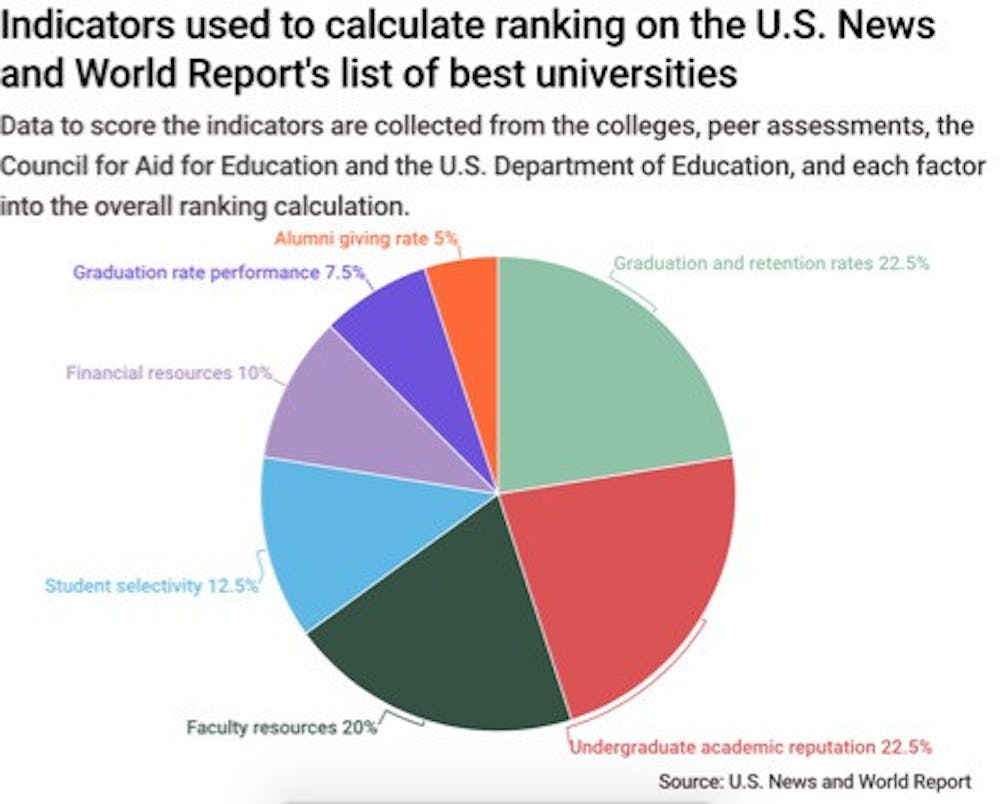U.S. News and World Report ranked Brown as number 14 on its list of best national universities for the third year in a row in its most recent version of the list. The University holds the 14th spot along with Cornell, Rice University and Vanderbilt University. The University also ranks number three on the list of schools with the best undergraduate teaching and number 14 in best valued schools.
The U.S. News list is just one of many tools to rank universities, and the admission office takes note of these rankings to better understand prospective students, said Dean of Admission Logan Powell. “We pay attention to it because we try to understand the perspective of prospective students and families and help them put into context what some of those rankings mean,” Powell said. “It’s one of the sources of information that students can utilize as they begin to explore colleges to which they might apply.”
The U.S. News lists rank universities based on data from colleges themselves, peer assessments, the Council for Aid to Education and the U.S. Department of Education’s National Center for Education Statistics. To calculate the rankings of the best universities, U.S. News uses up to 15 indicators, such as student selectivity and alumni giving rate.
Each indicator is given a different weight, determined by “its relevance to academic quality,” said Eric Brooks, a senior data analyst for U.S. News. Graduation and retention rates and undergraduate academic reputation are given the greatest weight in the U.S. News rankings.
The list has received criticism over the years for its methodology and influence on college admission. The U.S. News rankings are “a sloppily done academic evaluation,” said Brian Leiter, director of the University of Chicago’s Center for Law, Philosophy and Human Values, who wrote an essay criticizing college ranking lists in the Chronicle of Higher Education.
“It is simply impossible to explain the weighting,” Leiter said. “It’s just utterly arbitrary — you get entirely different results just by tweaking a few of the weights” of the factors that determine the final ranking.
The rankings’ methodology changes most years, according to the U.S. News and World Report website. “The weights have been adjusted over many years as new factors have been considered or weights of existing ranking factors have increased or decreased,” Brooks wrote in a follow-up email to The Herald. “There is no formulaic answer.”
Leiter also pointed out that the U.S. News rankings “set up an incentive structure for schools to basically devote their resources to moving up in the rankings.”
However, U.S. News compares collected data to previous data and uses “critical thinking” to reduce the ability for schools to “game” the system, Brooks said.
Though the University does work to improve areas such as faculty resources and the student experience — factors that are taken into account in the U.S. News rankings — these improvements are not connected to an effort to rise in the rankings, Powell said. “We do those things because they’re the right things to do, and they ensure the long-term success of Brown and the long-term quality of the Brown educational experience,” he added. Ultimately, the U.S. News rankings, along with other college rankings, are just one tool for prospective students to use while looking at colleges, Powell said.
Despite disagreeing with U.S. News’ methodology in determining rankings, Leiter still suggests that prospective students pay attention to the rankings since a school’s spot on the list can influence other students’ decisions to apply, thereby affecting the composition of the student body.
“Rankings are neither good nor are they bad,” Powell said. “They are a piece of information. Students and families should use that information, but they should use it as one of many sources of information. It should never be determinative, it should just be informative.”





